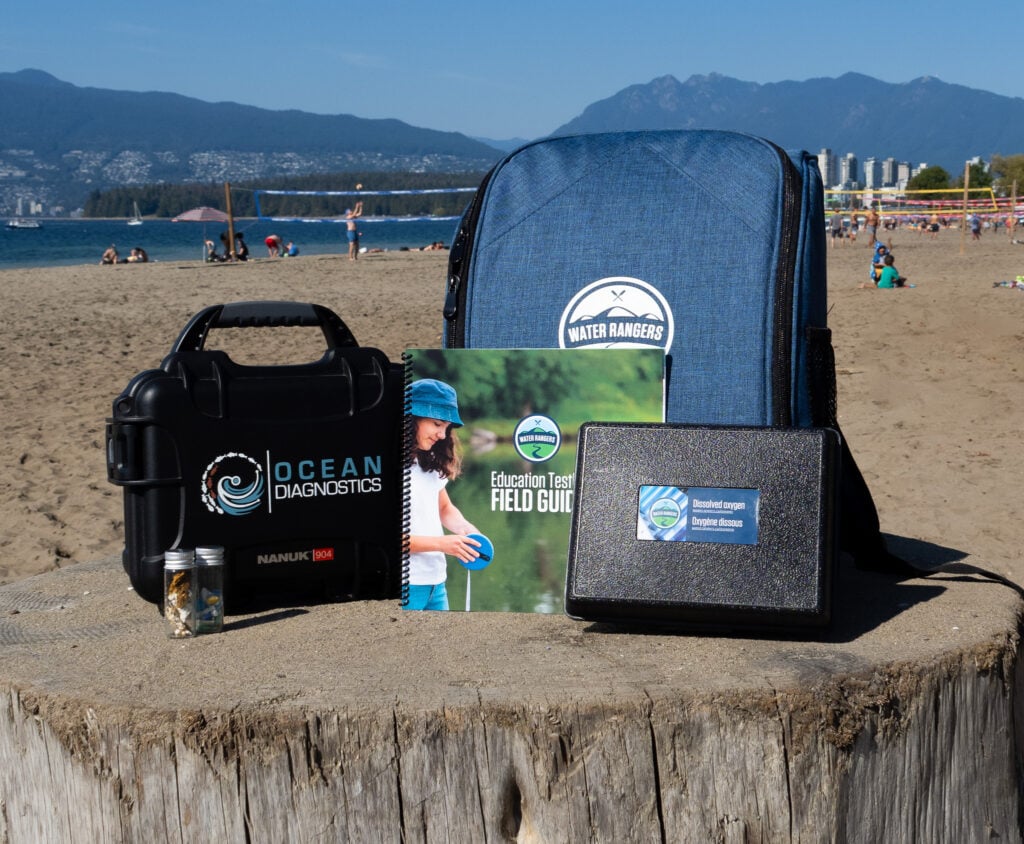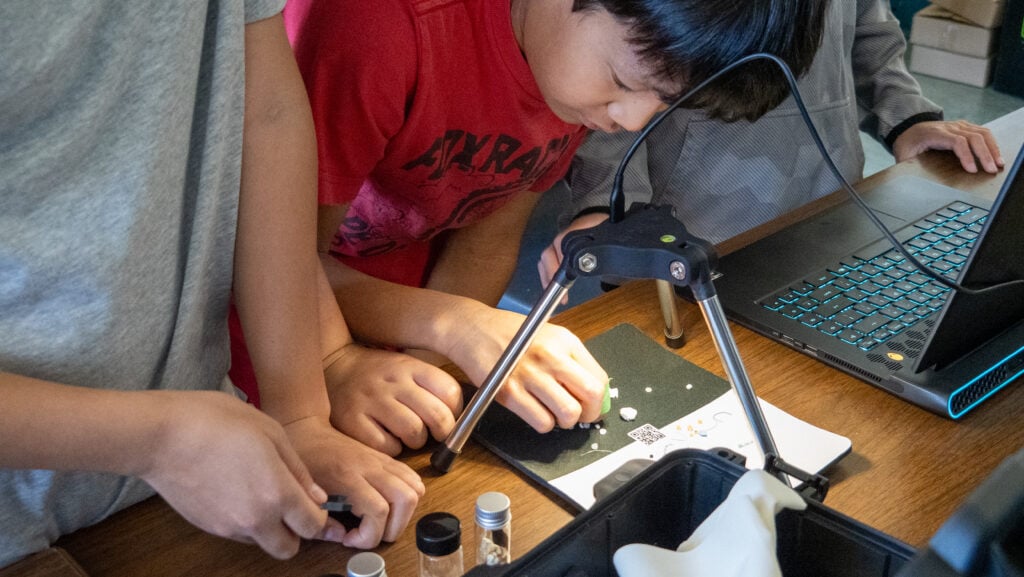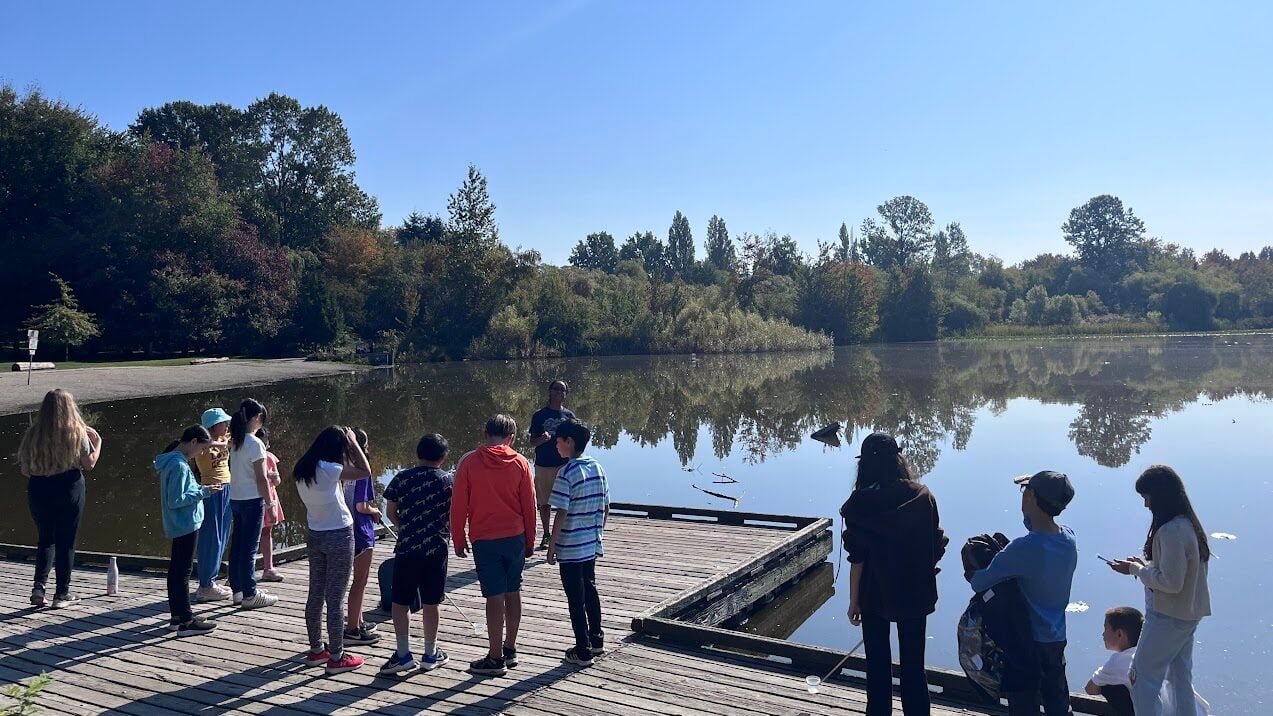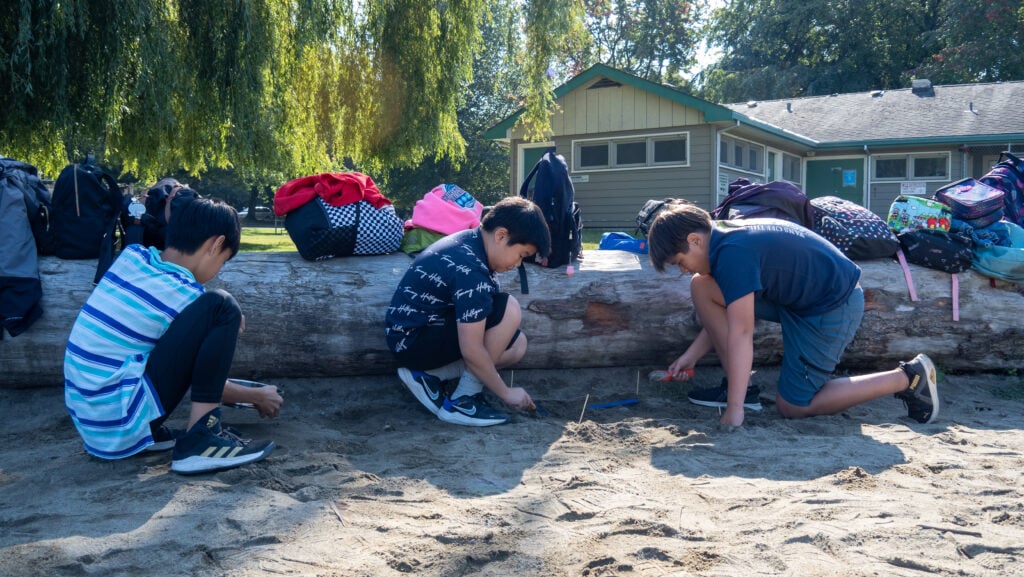Water quality and microplastics education kits
Water Rangers has teamed up with Ocean Diagnostics to equip the next generation of environmental change-makers with the knowledge and skills needed to address complex global issues, like water quality and plastic pollution. With our Water Quality Educational Testkit and Ocean Diagnostics’ Microplastics Education Toolkit, educators can feel supported in providing immersive nature-based learning experiences inside and outside their classrooms.

Questions?
Contact us to inquire about teaching water quality monitoring and microplastics sampling in your classroom.
Contact usWhy we collaborate
The collaboration between Water Rangers and Ocean Diagnostics is driven by a shared commitment to environmental education and collecting scientific data to fill crucial knowledge gaps. We believe in our educational framework, and that environmental knowledge empowers action, and action drives meaningful change.
Interdisciplinary and STEAM-focused
The kits place a strong emphasis on interdisciplinary learning and are a great introduction for youth to STEAM. Through hands-on experiences, data collection, the use of AI-based technology, and lots of critical thinking, we aim to create a unique and engaging educational experience that inspires young minds to become environmental stewards, scientists, and champions for a greener future.

Empowering educators
Both kits are designed to empower educators to become classroom experts in water testing and microplastic surveying. They provide easy-to-follow instructions, engaging training videos, and comprehensive lesson plans. What’s more, both toolkits are thoughtfully aligned with school curriculums, ensuring that educators can seamlessly integrate them into their teaching plans. The kits can be used in the classroom or in the field and includes helpful guidelines for organizing an outdoor excursion.
We also offer private training sessions and workshops to guide educators and students to use the kits!

What’s included
Microplastics educational toolkit
The toolkit is designed for students ages 12 and above, encouraging critical thinking and problem solving on ocean-related issues using cutting-edge technology. It includes:
- Educational resources developed in partnership with Canadian microplastic scientists.
- Suggested lesson plans and instructional videos.
- In-classroom or optional field microplastics sampling activities.
- AI-based automated microplastics imaging technology called Saturna.
- Data evaluation and communication tools.
- 1 vial of recovered ocean microplastics collected from beach cleanups.

Water quality education testkit
The education testkit is a curated experience to help teachers become experts in water testing. It includes:
- 3 sets of our most popular testing tools
- 1 dissolved oxygen testkit (30 vials)
- 1 refill bottle of teststrips (50 / bottle)
- 1 measuring reel for physical surveys
- 1 teacher guide
- 1 teacher clipboard
- 1 terry cloth towel
- 15 student cards (for filling out post-testing information)
- A goodie bag filled with paper stickers and badges

About Ocean Diagnostics
Ocean Diagnostics is a Canadian environmental impact company dedicated to protecting our planet from threats like plastic pollution and biodiversity loss. At the forefront of innovative technologies and laboratory capabilities, they help researchers and community scientists to collect and analyze essential data related to environmental DNA (eDNA) and microplastics. Most importantly, Ocean Diagnostics offers a Microplastics Educational Toolkit that aligns seamlessly with our water quality educational kits!
Learn more about Ocean Diagnostics and their work
About Water Rangers
Water Rangers is a Canadian non-profit organization dedicated to promoting water literacy and environmental stewardship in communities. We do this by building accessible, easy to use water quality test kits to empower folks to monitor the quality of their local water bodies. Our water testing kits are used by community monitoring groups, educators, and conservation authorities.